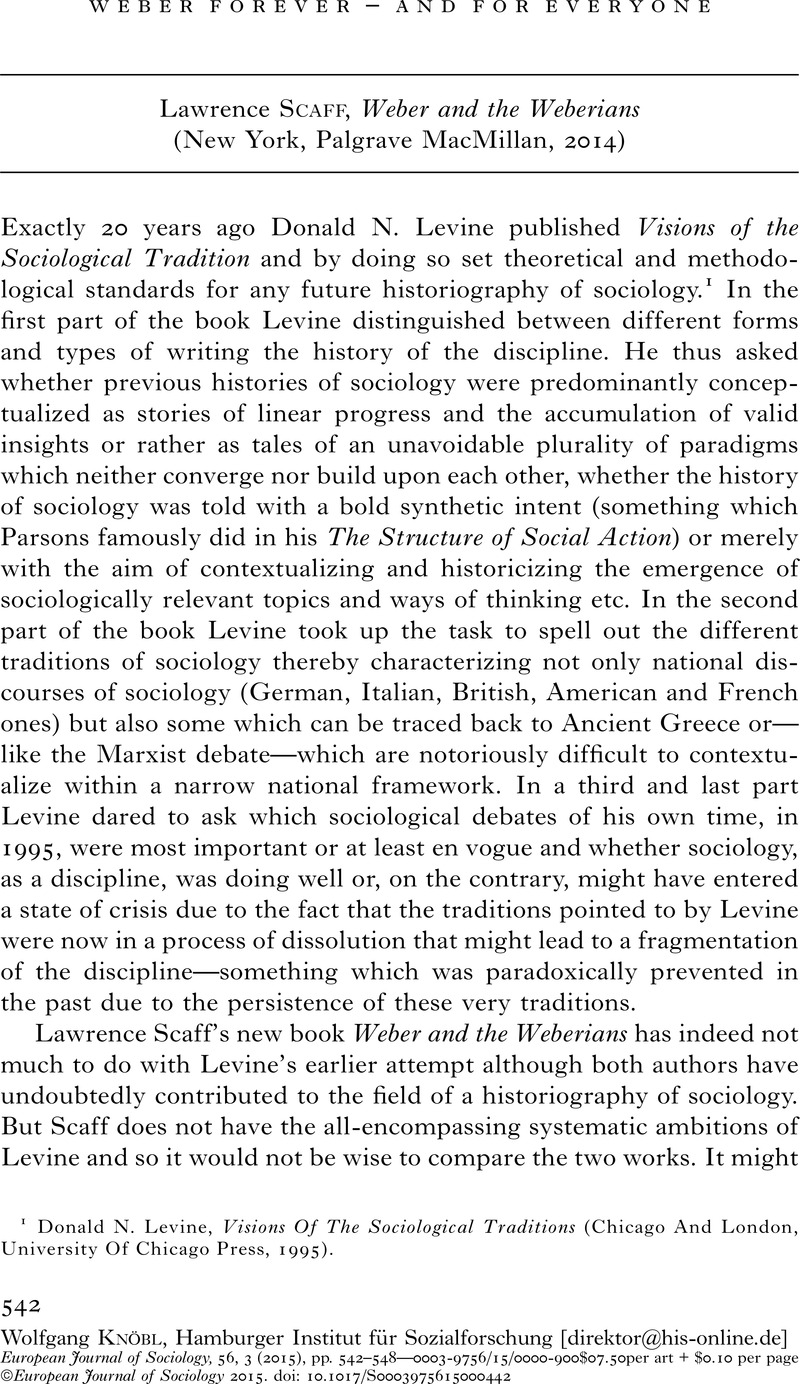No CrossRef data available.
Article contents
Weber Forever – and for Everyone - Lawrence Scaff, Weber and the Weberians (New York, Palgrave MacMillan, 2014)
Published online by Cambridge University Press: 30 December 2015
Abstract

- Type
- Book Reviews
- Information
- European Journal of Sociology / Archives Européennes de Sociologie , Volume 56 , Issue 3 , December 2015 , pp. 542 - 548
- Copyright
- Copyright © A.E.S. 2015
References
1 Donald N. Levine, Visions Of The Sociological Traditions (Chicago And London, University Of Chicago Press, 1995).
2 Jeffrey C. Alexander, Durkheimian Sociology: Cultural Studies (Cambridge, Cambridge University Press, 1988).
3 Stephen Kalberg, Max Weber’s Comparative-Historical Sociology (Cambridge, Polity Press, 1994); see also, for a much shorter version of the argument, Kalberg, Max Weber’s Sociology: Research Strategies and Modes of Analysis, in: Charles Camic, ed., Reclaiming the Sociological Classics. The State of the Scholarship (Oxford, Blackwell, 1998): 208-241.
4 “Parsons had more in common with Durkheim than with any of the other three major figures in ‘Structure’ (and certainly more than with the ‘omitted’ figure, Simmel).”(Edward A. Tiryakian, “An Emergent French Connection: Revisiting Parsons’s Durkheims” in Bernard Barber and Uta Gerhard, eds., Agenda for Sociology, Classic Sources and Current Uses of Talcott Parsons’s Work (Baden-Baden, Nomos Verlagsgesellschaft, 1999): 53-86, here p. 56; emphasis in the original).
5 Kenneth Pomeranz, The Great Divergence. China, Europe, and the Making of the Modern World Economy (Princeton and Oxford, Princeton University Press, 2000); see for a more recent challenge to Eurocentric views of the rise of the West Prasannan Parthasarathi, Why Europe Grew Rich and Asia did not. Global Economic Divergence, 1600-1850 (Cambridge, Cambridge University Press, 2011).
6 Rogers Brubaker, The Limits of Rationality. An Essay on the Social and Moral Thought of Max Weber (London, George Allen & Unwin, 1984: 2).
7 Hans Joas, Gefährliche Prozessbegriffe. Eine Warnung vor der Rede von Differenzierung, Rationalisierung und Modernisierung, in Karl Gabriel, Christel Gärtner, Detlef Pollak, eds., Umstrittene Säkularisierung. Soziologische und Historische Differenzierung von Religion und Politik. Zweite, um ein Register ergänzte Auflage (Berlin, Berlin University Press, 2014): 603-622.


